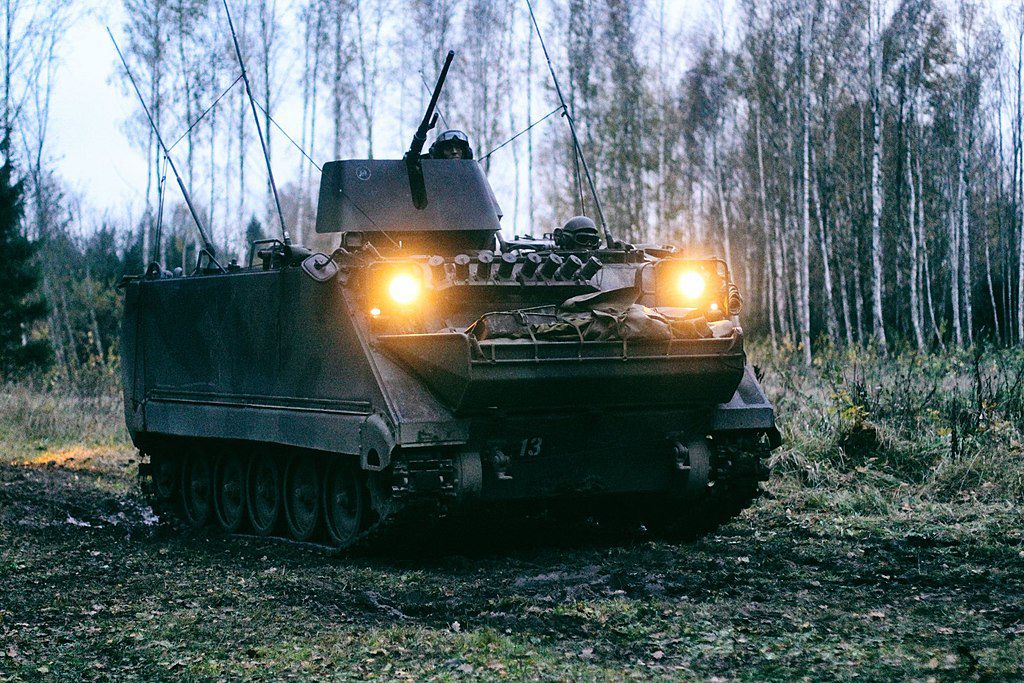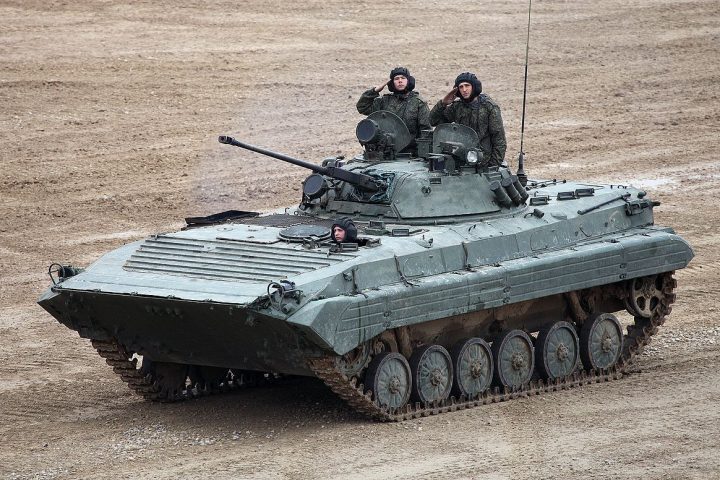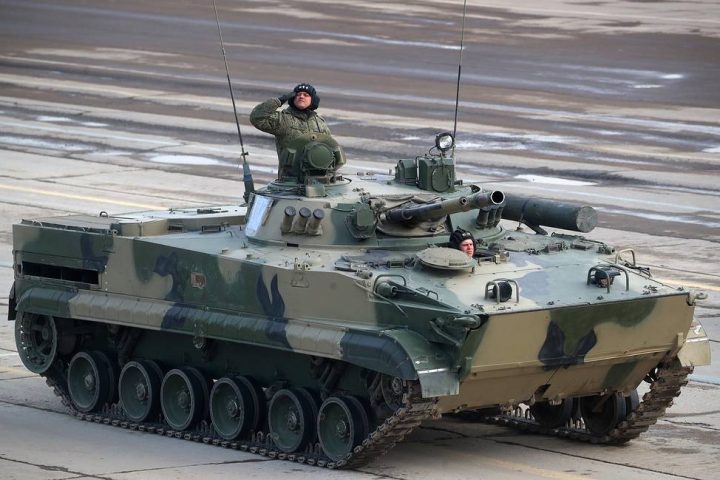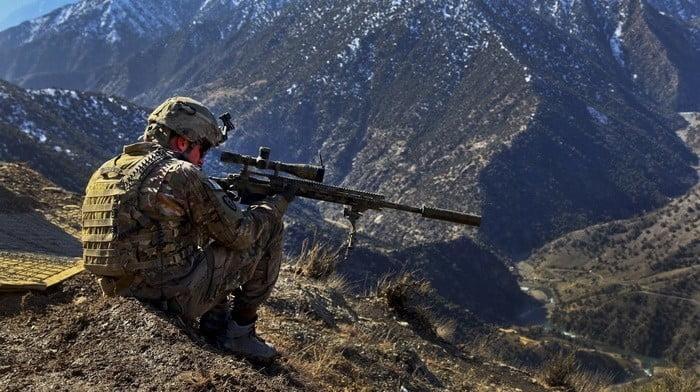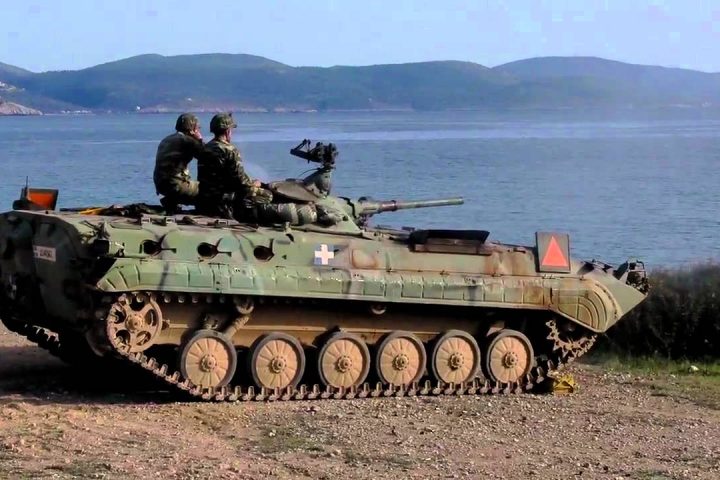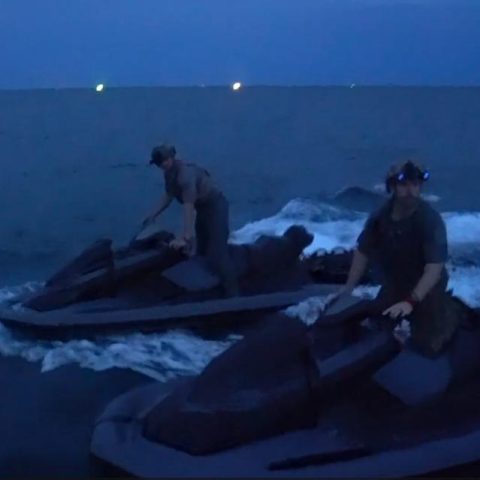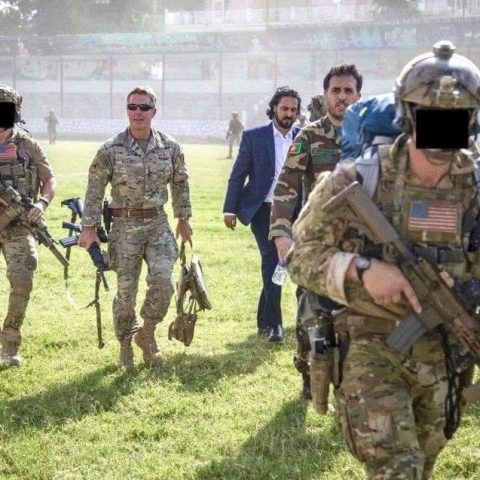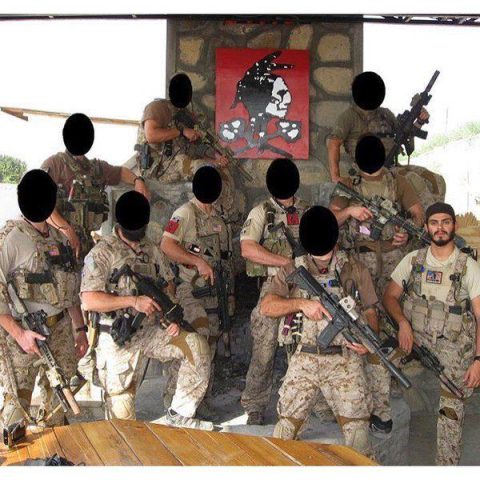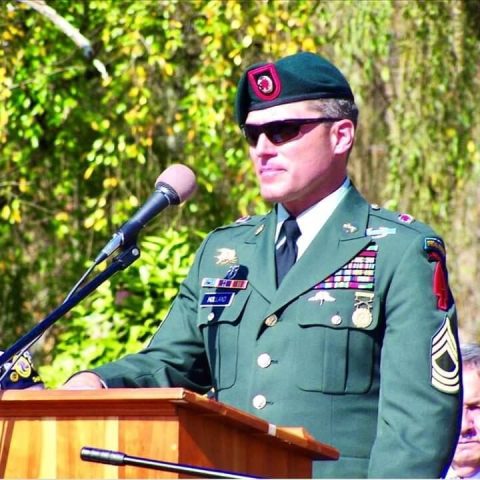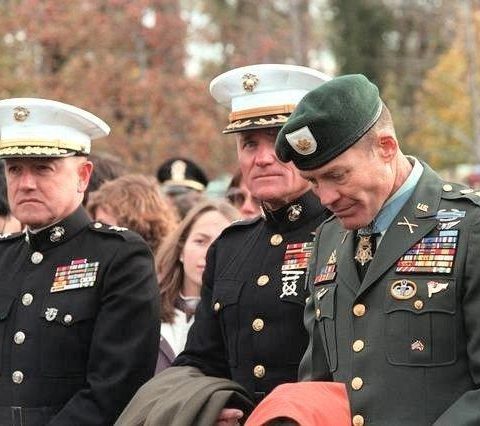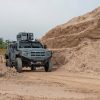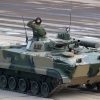The M113 is an Armored Personnel Carrier (APC) intended to transport infantry soldiers to the front line. Up to the 1950s, infantry went to battle riding a truck or a tank, a dangerous exposure. APCs had the same mobility as tanks and tracked vehicles and armor protection for their crews.
Like the contemporary Soviet BTR-152 series, it featured a gasoline engine and an open crew space; however, the BTR-152 was a wheeled vehicle. Made primarily of aluminum, the M113 was light enough to be air transported by a Lockheed C-130 Hercules. Its armor protected the crew from small arms fire. However, the upper hull was vulnerable to incoming fire.
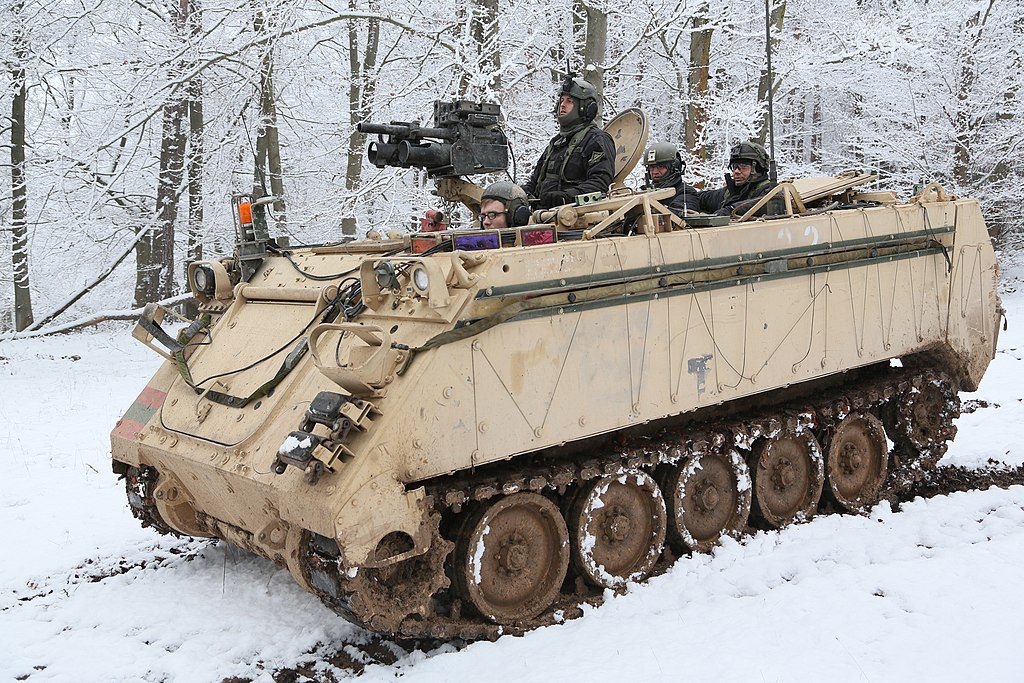
Key recognition features
- Box-shaped hull with front sloping at 60 degrees to the rear, horizontal roof, vertical hull rear with large power-operated ramp, vertical hull sides with no firing ports or vision devices
- Driver’s circular hath front left with air louvers to the right, commander’s cupola with externally mounted 12.7m M2 HB machine gun in the center of the roof with rectangular hatch to rear. External box-type fuel tanks on each ramp side on the hull rear.
- Suspension on each side has five road wheels, drive sprocket front, idler rear, no track-return rollers, and the upper part of the track is typically covered by a rubber skirt.
Development
M113 was replaced in production by diesel-powered M113A1 in 1964, which was replaced by M113A2 with a number of automotive improvements. The latest model is M113A3 which entered service in 1987 and has many improvements, including more powerful engine spall liners and optional applique armor. By 1992 over 76,000 M113s and their variants had been built, including about 4,500 built-in Italy by OTOBREDA. The basic vehicle is fully amphibious, propelled in the water by its tracks. Before entering the water, a trim vane is erected in front of the hull, and bilge pumps are switched on.
Variants
There are countless local modifications of M113; for example, Israeli vehicles have additional armor protection. German vehicles have smoke grenade dischargers on the hull front and a 7.62mm machine gun in place of the standard 12.7mm M2 HB machine gun. The following list is by no means exhaustive.

M113 with dozer blade, M106 107mm mortar carrier, M125 91mm mortar carrier, M113 A/A (Egypt 2 x 23mm), M163 20mm Vulcan air defense system, M548 unarmored cargo carrier, M577 command post vehicle with a higher roof, M113 series recovery vehicle, M901 Improve TOW vehicle (tank destroyers), M981 Fire Support Team Vehicle, M113 with Scorpion turret (Australia), M113 with Green Archer radar (Germany).
The Norwegian Army had a number of specialized versions of the M113 series, including the NM135, which has a one-man turret armed with a 20mm cannon and a 7.62mm machine gun, and the NM142, which has a one-man Armored Launching Turret with to TOW ATGW in the ready to launch position. Italy has the SIDAM 4 x 25mm SPAAG on the M113 chassis. Chassis is also used as a basis for the ADATS air defense system. M548 is used for many specialized vehicles, including Tracked Rapier air defense system. Chaparral air defense missile system, minelayer (Germany), and electronic warfare carrier.
Status
In production. In service with Argentina, Australia, Belgium, Bolivia, Bosnia and Herzegovina, Brazil, Canada, Chile, Costa Rica, Denmark, Ecuador, Egypt, Ethiopia, Germany, Greece, Guatemala, Iran, Israel, Italy, Jordan, Kampuchea, South Korea, Kuwait, Laos, Lebanon, Morocco, Netherlands, New Zealand, Norway, Pakistan, Peru, Philippines, Portugal, Saudi Arabia, Singapore, Somalia, Spain, Sudan, Switzerland, Taiwan, Thailand, Tunisia, Turkey, United States, Uruguay, Ukraine, Vietnam, Yemen, and Zaire.

Manufacturer
United Defense Ground Systems Division, San Jose, California, United States of America. Also built by OTOBREDA in La Spezia, Italy, and by BMF in Belgium for the Belgian Army.
Technical specifications
| Crew: | 2+11 |
| Armament: | 1 x 12.7mm machine gun |
| Ammunition: | 2000 x 12.7mm |
| Length: | 4.863 m |
| Width: | 2.686 m |
| Height overall: | 2.52 m |
| Height to hull top: | 1.85 m |
| Ground clearance: | 0.43 m |
| Weight, combat: | 11,253 kg |
| Weight, empty: | 9,957 kg |
| Power-to-weight ratio: | 18.51 hp/tonne |
| Ground pressure: | 0.55 kg/cm2 |
| Engine: | Detroit Diesel Model 6V-53, 6-cylinder water-cooled diesel developing 212bhp at 2,800rpm |
| Maximum road speed: | 60.7 km/h |
| Maximum water speed: | 5.8 km/h |
| Maximum road range: | 480 km |
| Fuel capacity: | 360 lit |
| Fording: | Amphibious |
| Vertical obstacle: | 0.61 m |
| Trench: | 1.68 m |
| Gradient: | 60% |
| Side slope: | 40% |
| Armor: | 44 mm (maximum) |
| Armor type: | Aluminum |
| NBC system: | Optional |
| Night vision equipment: | Yes (passive or infra-red for the driver) |


